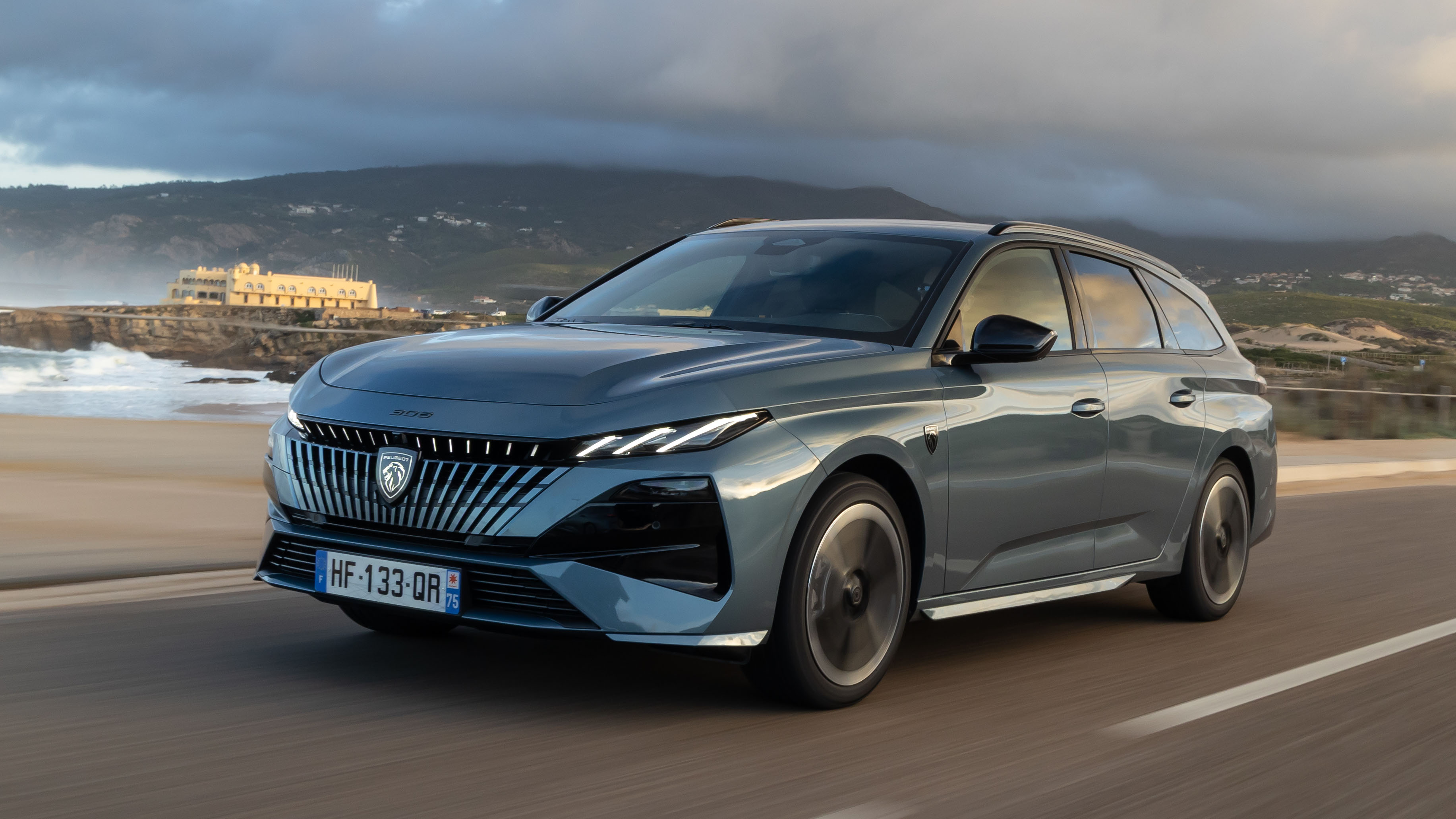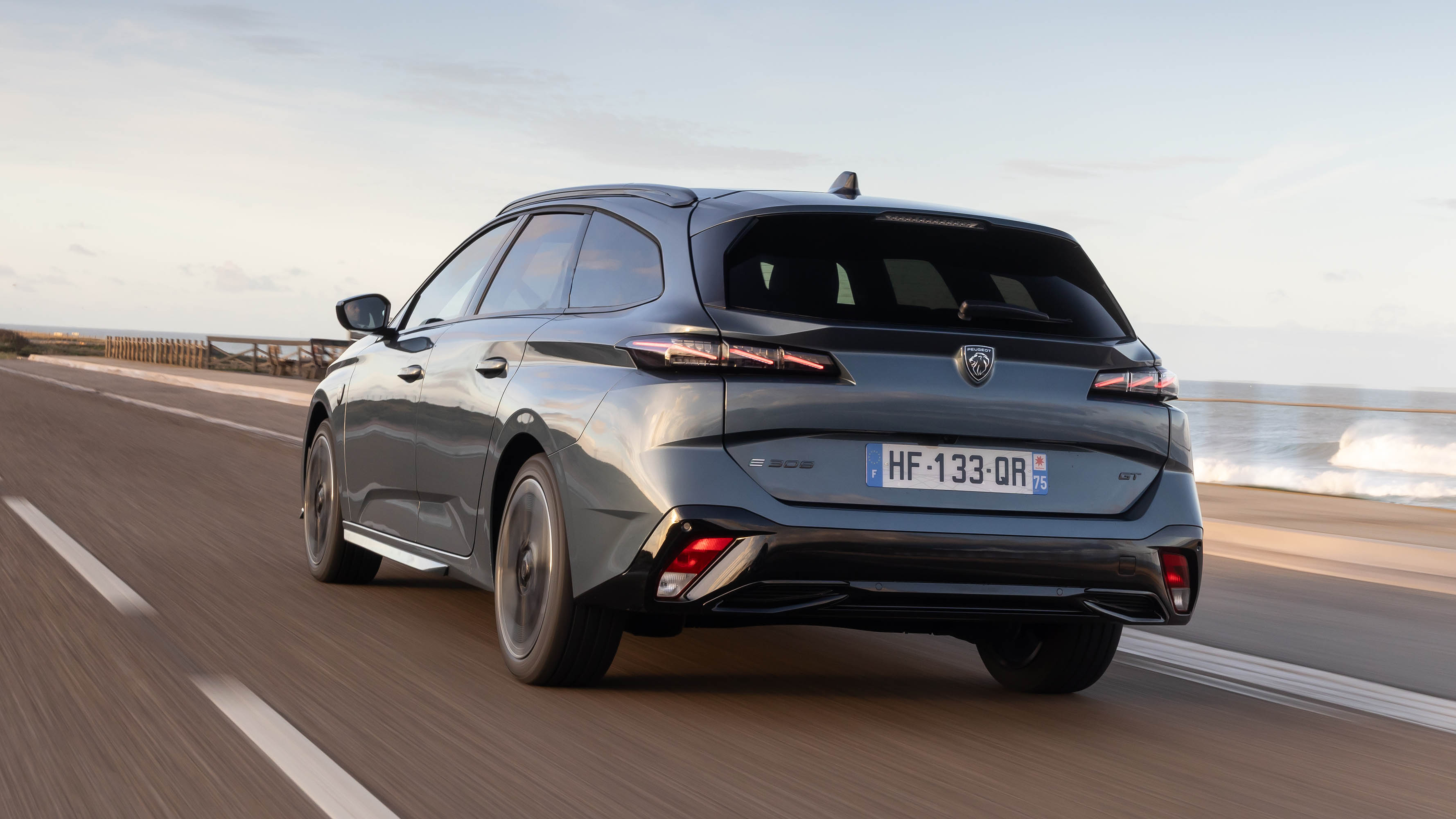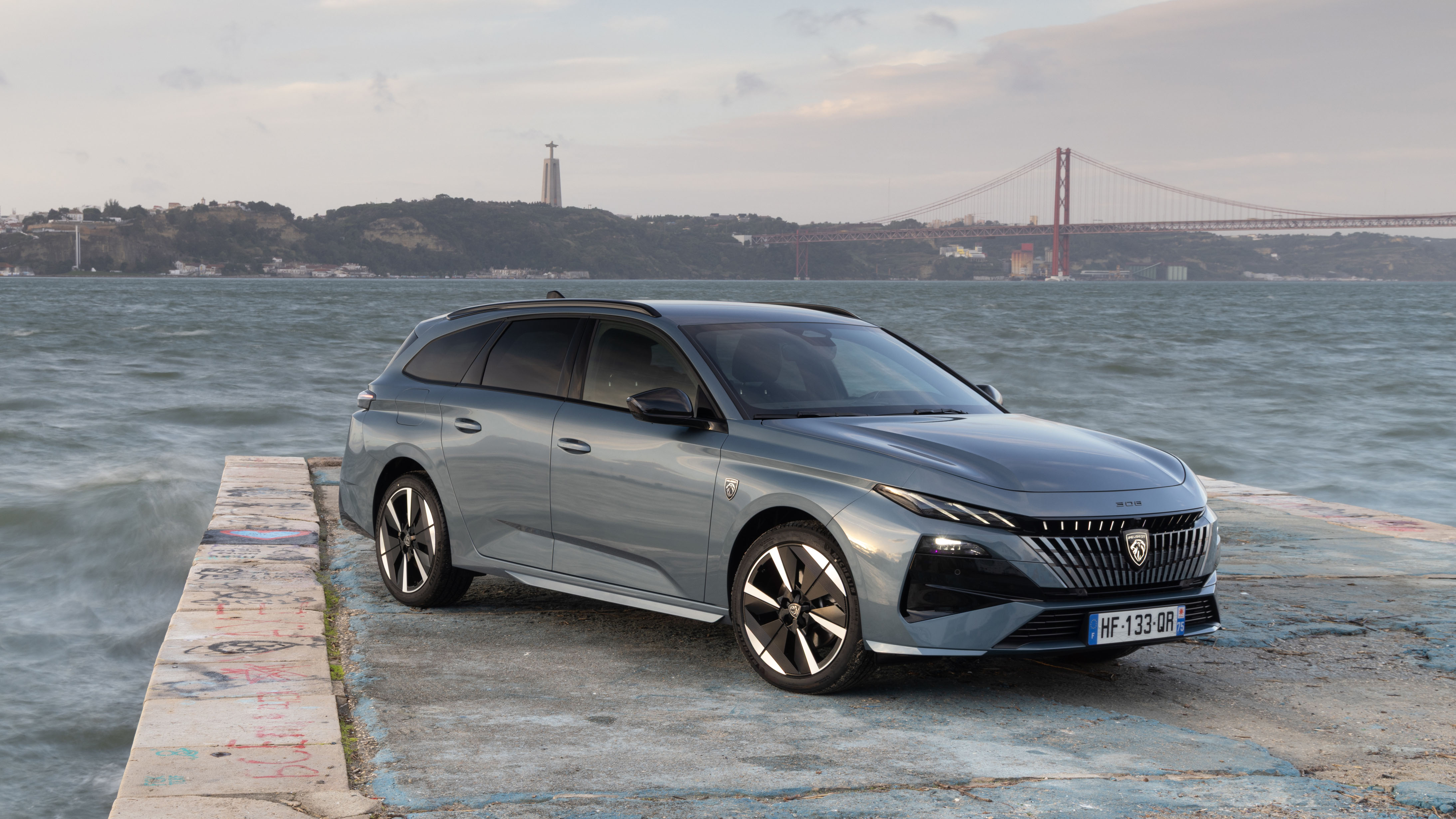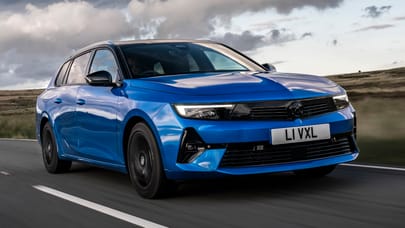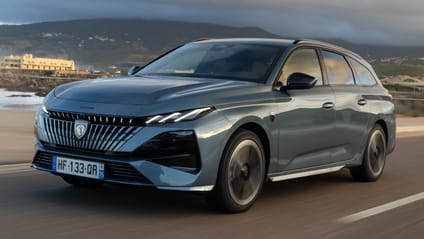
Good stuff
Easy to drive, useful extra space over the E-308 hatch, efficient
Bad stuff
It's hardly going to set your world alight
Overview
What is it?
This is the estate version of Peugeot’s 308, but now with batteries included. In fact the stalwart model is well into its third generation: the original was launched in 2007, with a second version arriving in 2013 and the current one revealed in 2021 - and since facelifted in 2025.
It sits on parent company Stellantis’s EMP2 V3 platform, which means it shares its undergubbins with the likes of the DS 4 and Vauxhall Astra (the latter also has a load lugging electric variant on sale).
All the things we like about the E-308 hatch have been translated to the larger model: it’s refreshingly normal and easy to use. No headline grabbing bhp craziness (just 154bhp and 270lb ft of torque on offer here) and no space-age design weirdness. Although the 2025 facelift brings a whole row of illuminated grille lights and a chintzy illuminated Peugeot badge up front, albeit optionally.
Must be expensive, though.
At launch, yes; this car topped forty grand when new, though clawed back its financial appeal with much lower BIK banding (for company car users) than its combustion-engined siblings. But Peugeot has seen sense - or been suitably scared by its swelling Chinese competition - and hacked off ten grand for the mid-life facelift.
Supplemented by the latest UK government Electric Car Grant, prices now start at a whisker over £30,000 for the entry-level Allure, rising to about £35k for the top-spec cars. Much more like it, especially when a hybrid 308 with similar power can actually end up costing a bit more. This is how you get people in EVs...
What about the battery?
The E-308 SW launched with just one battery size available, a 51kWh pack seen in other Stellantis models and, indeed, the E-308 hatchback. Pre-facelift, it possessed a WLTP range of 254 miles, and we got 3.4mi/kWh out of the car in a week of mixed driving. Which works out at around 185 miles from a full tank of electricity.
Post-facelift, with improved battery chemistry for a 55kWh capacity, its WLTP claim is 275 miles. So perhaps you'll crack 200 more easily in real-world conditions. With the benefit of warm, Portuguese weather, we topped 4mi/kWh this time around.
The car charges at a 100kW maximum rate if you find yourself a suitably beefy ultra rapid charger, which means 20 to 80 per cent in around 30 minutes.
Not many electric estates about, are there?
It is a niche that has been left sadly unexplored by many for a long time. But then estates aren’t the force they once were, so there can’t be quite as many sales to tap into in a crossover-led world. No wonder there are so many electric SUVs everywhere.
As well as the Vauxhall Astra Sports Tourer, at this end of the market you’ve also got the MG5 EV. There's a VW ID.7 Tourer on its way but all the other electric estates out there are proper premium jobs. You're unlikely to consider this against something like the BMW i5 Touring or Porsche Taycan. Expect Chinese rivals to swell in their ranks, however, and Skoda has a rival coming too. If you merely want an estate that's got overt green credentials, there's the Uber-friendly Toyota Corolla too.
Both Astra and MG5 are fairly low rent in comparison with the Peugeot, which edges them both out by being très chic, and all that. To be fair, Vauxhall has upped its game in recent years, but the Astra Estate still leaves us slightly cold - though the Brit brand goes heavy on incentives for EV buyers and you'll get a ton of free charging from them if you're nice to the dealer. A wildcard from the Stellantis stable would be the Citroen e-Berlingo, if utmost practicality is what you need. In which case, the fresh TG family car favourite is the oddball Kia PV5...
So how does the E-308 drive?
Peugeot had decided it was avowedly unsporty, chasing those premium profit margins. But standing out in the vast Stellantis empire is tough, and Peugeots are apparently sporty again. Especially now there's new GTI hot hatches on the way.
Whatever the latest company line, the E-308 has handled well the whole time, a subtly satisfying contender happy to not crow on about its talents. The small, thick-rimmed steering wheel, laidback driving position and cosseting interior all lend a cosy but purposeful atmosphere to the car.
And while there’s not masses of feel, the car will turn promptly into a corner and benefits from the low-slung centre of gravity that you get with a big battery pack.
Our choice from the range

What's the verdict?
On paper this is an eminently sensible purchase: it’s easy to live with day to day and the extra boot space over the hatchback model gives it useful extra practicality. It’ll be cheap to run, too. A very good electric car for all the family. The fact it looks pretty jazzy and drives with an underlying satisfaction ought to sweeten the deal. Especially now it's loads cheaper and goes further on a charge post-facelift.
If you’re really into your EV driving then it doesn’t offer the same level of flexibility and granular detail that other cars do, but that’s not really how it operates. While other carmakers play catch-up on electric estates, Peugeot’s take is probably the best all-rounder you can currently buy at the affordable end of the market.
The Rivals
Trending this week
- Car Review
BMW 1 Series
- Top Gear's Top 9
Nine dreadful bits of 'homeware' made by carmakers




